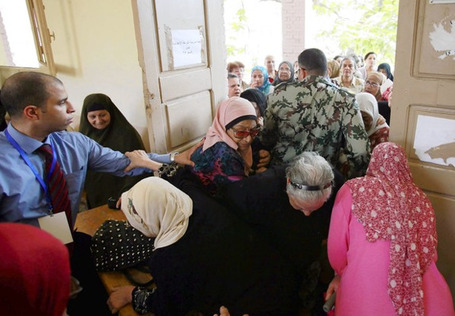 | Egypt News Curated by Marc Chartier |
Egyptians began voting Saturday for a new president, but the joy that defined the first round of elections last month had turned sullen, as if they were enduring the final betrayal of a revolution by a ruling military that has manipulated events from the wings for six decades.
The choice they face in two days of balloting is stark and unsettling: Muslim Brotherhood candidate Mohamed Morsi represents an untested political Islam, and Ahmed Shafik, the last prime minister to serve toppled leader Hosni Mubarak, is an old-guard loyalist whose victory would repudiate the demands for change that fueled last year's rebellion.
Temperatures were high and turnout was low, amid fear that the runoff would not bring them a new democracy to end months of political unrest and inspire an Arab world in upheaval. Much is uncertain about the country's fate: A high court last week dissolved the Islamic-dominated parliament, no constitution has been drafted to outline presidential powers, and the army and police intensified patrols and checkpoints across the capital and other cities.
"I am voting today for Morsi, but I know the results," said Dina El Garf, a young woman from the Cairo neighborhood of Dokki. She said that the military "will never let Morsi win. I know it will be the military's choice and that is Shafik. A lot of people did not come out to vote today for this reason." (Jeffrey Fleishman and Reem Abdellatif, Los Angeles Times)

